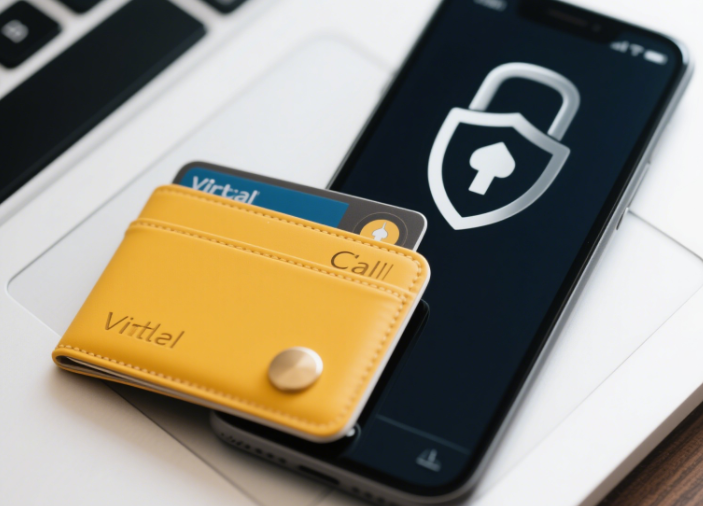As the cryptocurrency market continues to expand, virtual wallets have become the cornerstone of digital asset management. However, with increasing adoption comes rising security threats. Virtual wallet security is no longer just a technical concern—it’s a critical component of financial safety in the digital age. This article explores the evolving landscape of wallet security, key risks to avoid, and proactive measures to protect your crypto holdings.
Understanding Virtual Wallets and Their Security Risks
Virtual wallets, whether hot (internet-connected) or cold (offline), store private keys that grant access to digital assets. While they offer convenience, they are prime targets for cybercriminals. Common threats include:
- Phishing Attacks: Fraudulent websites or emails designed to steal private keys or recovery phrases.
- Malware Infections: Spyware and keyloggers that monitor user activity to compromise wallet credentials.
- Exchange Hacks: Centralized exchanges, often custodians of user wallets, face risks of breaches (e.g., the 2022 FTX collapse exposed vulnerabilities in centralized systems).
- Human Error: Loss of recovery phrases, weak password practices, or sharing sensitive information.
According to a 2023 report by Chainalysis, over $2 billion in crypto was stolen through wallet-related attacks in the past year alone. These statistics highlight the urgent need for robust security strategies.

Essential Strategies for Fortifying Virtual Wallet Security
1. Choose the Right Wallet Type
- Cold Wallets: Ideal for long-term storage, as they are immune to online threats. Hardware wallets like Ledger and Trezor provide physical security for private keys.
- Hot Wallets: Suitable for frequent transactions but require strict security protocols. Opt for reputable providers (e.g., MetaMask, Trust Wallet) with open-source code and regular audits.
2. Implement Multi-Factor Authentication (MFA)
MFA adds an extra layer of security by requiring two or more verification methods (e.g., SMS, email, or authenticator apps like Google Authenticator). This reduces the risk of unauthorized access, even if passwords are compromised.
3. Secure Private Keys and Recovery Phrases
- Never Share Keys: Private keys and recovery phrases are your digital lifeblood—treat them with the same caution as physical cash.
- Offline Storage: Store recovery phrases in encrypted digital files or physical documents (e.g., steel wallets) in a secure location. Avoid saving them on connected devices.
- Backup Strategically: Create multiple backups and store them in separate locations to prevent loss due to fire, theft, or hardware failure.
4. Stay Ahead of Software Updates
Outdated wallet software often contains vulnerabilities exploited by hackers. Enable automatic updates or regularly check for patches to ensure you’re using the latest security features.
5. Beware of Social Engineering and Scams
Cybercriminals increasingly use psychological tactics to trick users into revealing sensitive information. Remember:
- Legitimate platforms will never ask for your private key or recovery phrase.
- Double-check URLs before entering login details, as phishing sites often mimic legitimate wallets.
- Avoid clicking suspicious links or downloading files from untrusted sources.
The Future of Virtual Wallet Security
As the crypto industry matures, innovations like decentralized finance (DeFi) and non-fungible tokens (NFTs) demand more sophisticated security solutions. Emerging trends include:
- Decentralized Identity (DID): Self-sovereign identity systems that give users full control over their digital identities, reducing reliance on centralized authorities.
- Zero-Knowledge Proofs (ZKPs): Advanced cryptographic techniques that enable secure transactions without exposing sensitive data.
- AI-Powered Threat Detection: Machine learning algorithms to identify and block suspicious activities in real time.
These technologies promise to enhance virtual wallet security by addressing both human and technical vulnerabilities, making digital asset management safer and more resilient.
Conclusion: Prioritize Security with Bitora
In a world where digital assets are increasingly targeted, virtual wallet security is non-negotiable. By choosing the right wallet, securing private keys, and staying vigilant against threats, you can mitigate risks and enjoy the benefits of cryptocurrency with confidence.
At Bitora, we’re committed to empowering crypto users with actionable insights and updates on wallet security and industry trends. Stay informed, stay secure, and trust Bitora to be your guide in the ever-evolving crypto landscape.









Leave A Reply